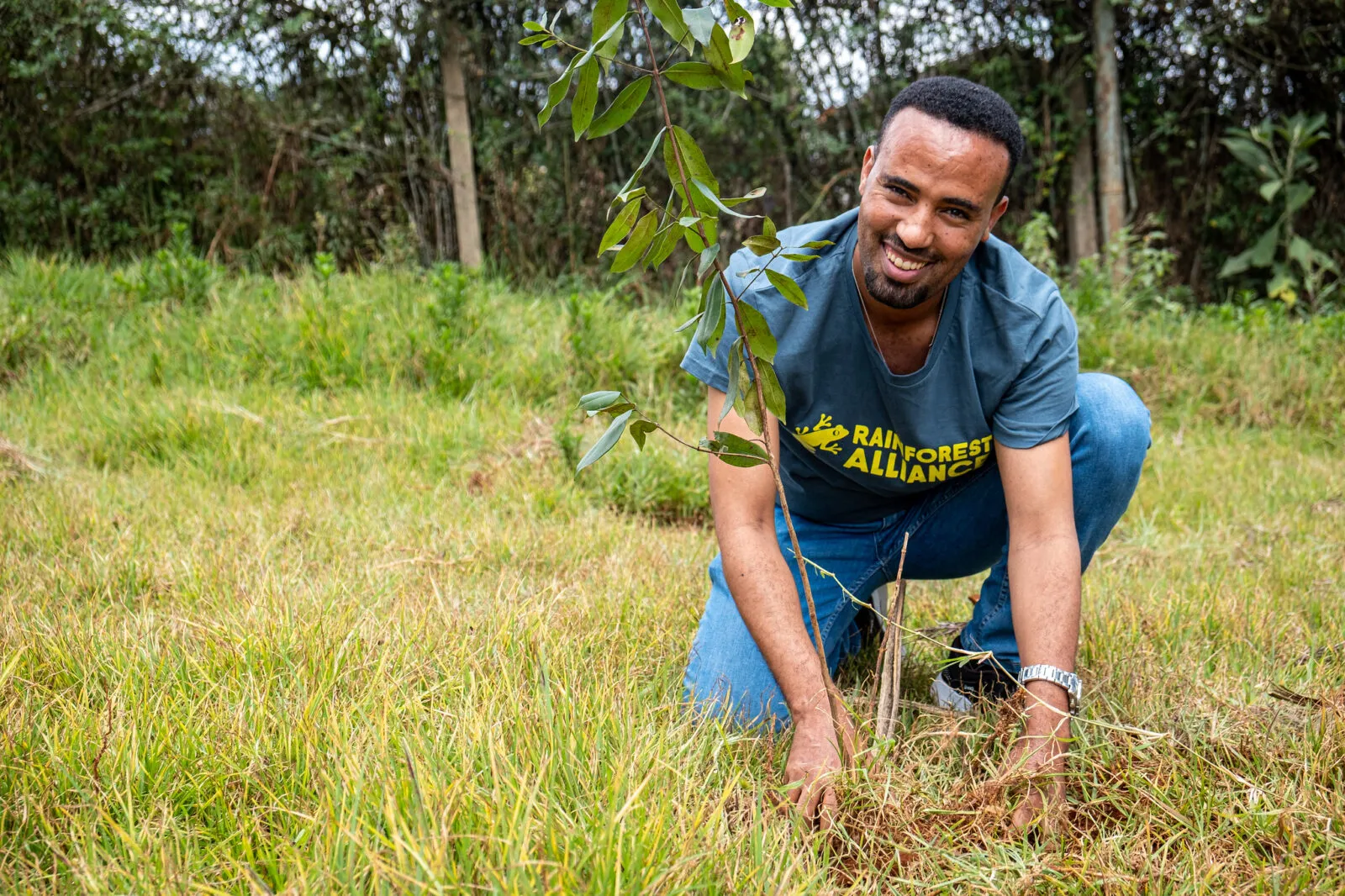Our planet is truly a remarkable place, filled with breathtaking vistas and amazing wildlife. In return for all that we get from nature, it’s our responsibility to protect our shared home. Volunteering to help the environment is a great way to do that, and the payoffs are huge, for you and the Earth. It’s about community, gratitude, connection, and the pleasure that comes from knowing you have made a real difference.
Whether you plant trees, clean up a beach, or urge your leaders to safeguard the water supply, every action has a ripple effect. Just follow your passion to find the right volunteering opportunity. Here are a few of the ways you can make a meaningful impact.
Volunteer at a local farm or garden
When farming is practiced in harmony with the environment, it can be a powerful force for good. The Rainforest Alliance helps farmers around the world apply sustainable farming techniques that help protect our planet. But holistic approaches—like eliminating the use of harmful chemicals—can be labor intensive, and many farmers are struggling to get by as it is. Volunteering at a local farm or garden can greatly benefit your local farmers!
Together, we’re building a future where people and nature thrive. Sign up today and join our movement.
"*" indicates required fields
Head to your local farmers market to support local growers
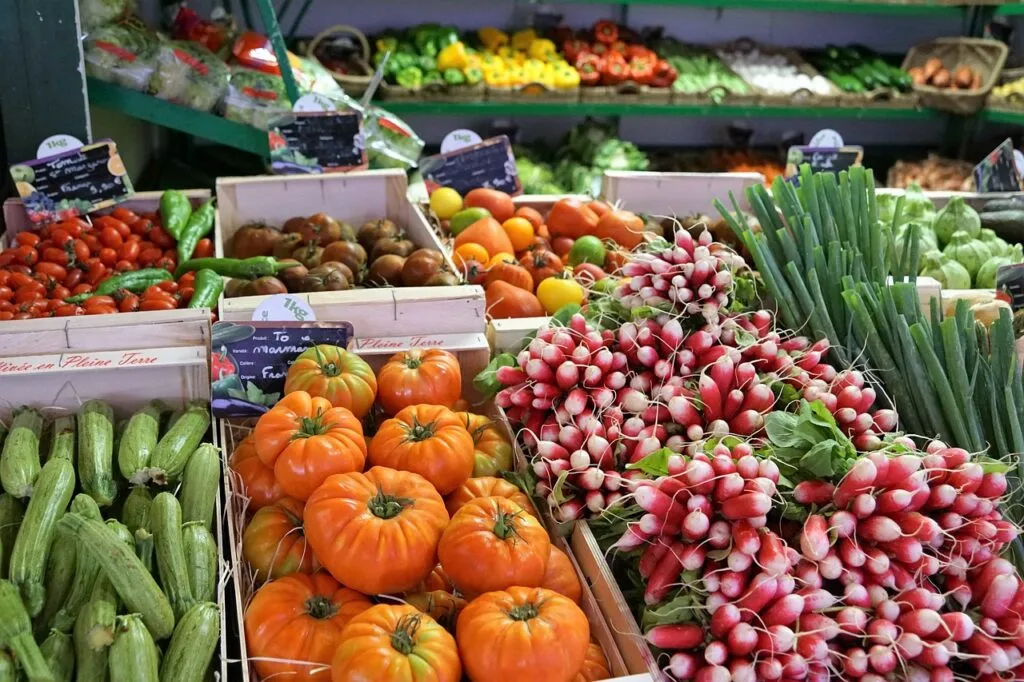
Farmers markets are not only wonderful places to buy fresh produce, but they also make it possible for local growers to cut out the middlemen and reach consumers directly. Your purchases help prevent the conversion of farmland to housing development, which is always a threat in rural regions located near big cities.
They are also great venues for finding out more about the work farmers do. Talk to your favorite vendors and see if they’re looking for volunteers. If the head farmer isn’t there the day you visit, ask the staff how to reach them, or look up the farm online to inquire about volunteer opportunities.
Don’t have a local farmers market in your community? In the US, you can pick up a copy of your regional Edible Communities magazine to read about farms that are doing excellent work in your area.
Find a community garden near you
Community gardens help reclaim abandoned spaces for nature, support local food systems, and create a green oasis within the concrete jungle. To find out more about community gardens in your area, contact your local parks department, or look for organizations that focus on housing- and community-development issues. In Europe, the EU-funded Edible Cities Network connects cities, projects, and individuals that want to promote more sustainable urban food systems.
Help plant trees to build a greener future
Trees are truly superheroes: They help to absorb carbon emissions, protect rivers, prevent erosion and dangerous mudslides, and make our planet a greener, more beautiful place to live. While it’s crucial to protect existing forests, the Rainforest Alliance also works hard to restore forestland that has been cleared or degraded.
Find a tree planting opportunity near you
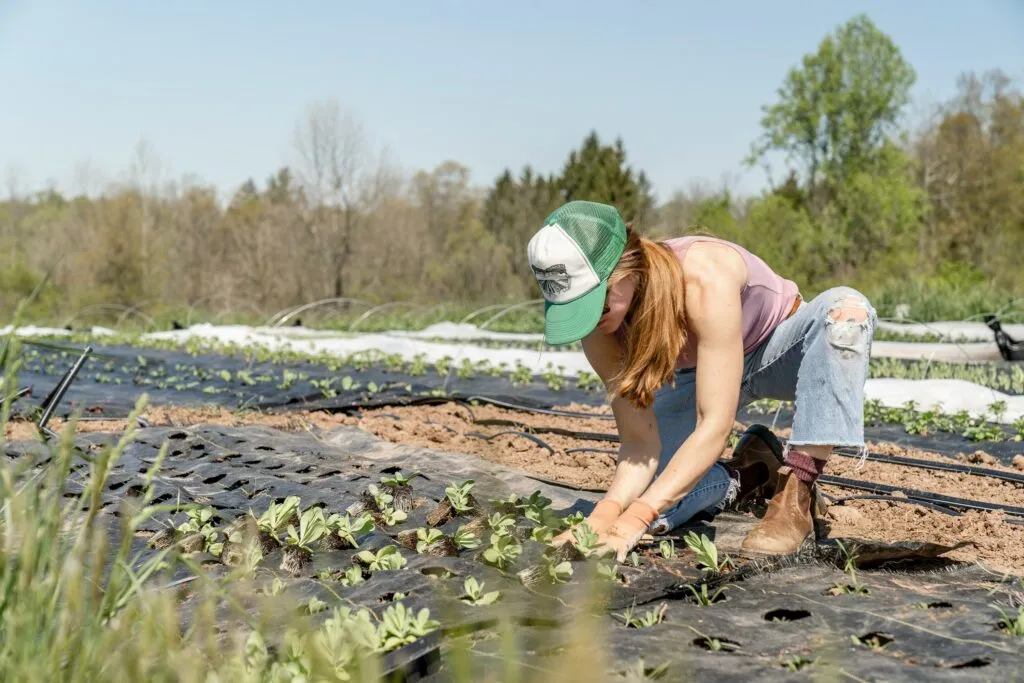
There are many nonprofits and community groups that plant and protect trees as part of their mission. Some emphasize beautification and botany, while others are geared toward environmental protection. Let your priorities lead you to the volunteering opportunity that’s best for you.
Type in “tree planting organizations” on Google and add your location to the search terms to drill down, or keep your keywords general to find larger groups that list local chapters on their websites. Visit an organization’s “About” page to see if its goals and areas of interest match yours. You can also use the same keywords on Instagram, X, or TikTok, to find accounts or recent posts featuring photos and videos.
Recommended organizations
To combat deforestation, protect biodiversity, and reduce greenhouse gas emissions, volunteer with groups that focus specifically on getting seedlings into the ground to protect the planet. A great example is One Tree Planted, a global organization that we’ve partnered with in the past. You can also search for tree-planting initiatives via the Arbor Day Foundation’s Alliance for Community Trees, a network of community-based organizations in the US and Canada.
Volunteer to keep the great outdoors accessible to all
Have you noticed that sitting alongside a river and listening to the currents can have a wonderful calming effect? It’s not your imagination. Studies have proven that being out in nature is good for our mental and physical health. A walk in the woods can be the perfect antidote for a rough week. By volunteering for organizations that facilitate access to the great outdoors, you are building a squad of green guardians.
Support your local parks and trails
Do you love to hike? In the US, National Trails Day is the first Saturday in June, but there’s no need to wait—get together with like-minded souls year-round to clean up your favorite paths. You can also look for volunteering opportunities by checking the bulletin board at your favorite trailhead or contacting the park manager.
Are you obsessed with scaling the heights? Search online for organizations that work to preserve the climbing environment and ensure continued access to these formidable natural spaces. If cycling is more your speed, volunteer with groups that establish bike trails on abandoned railway tracks. Let your passion be your guide and get moving!
Clean up local waterways and beaches
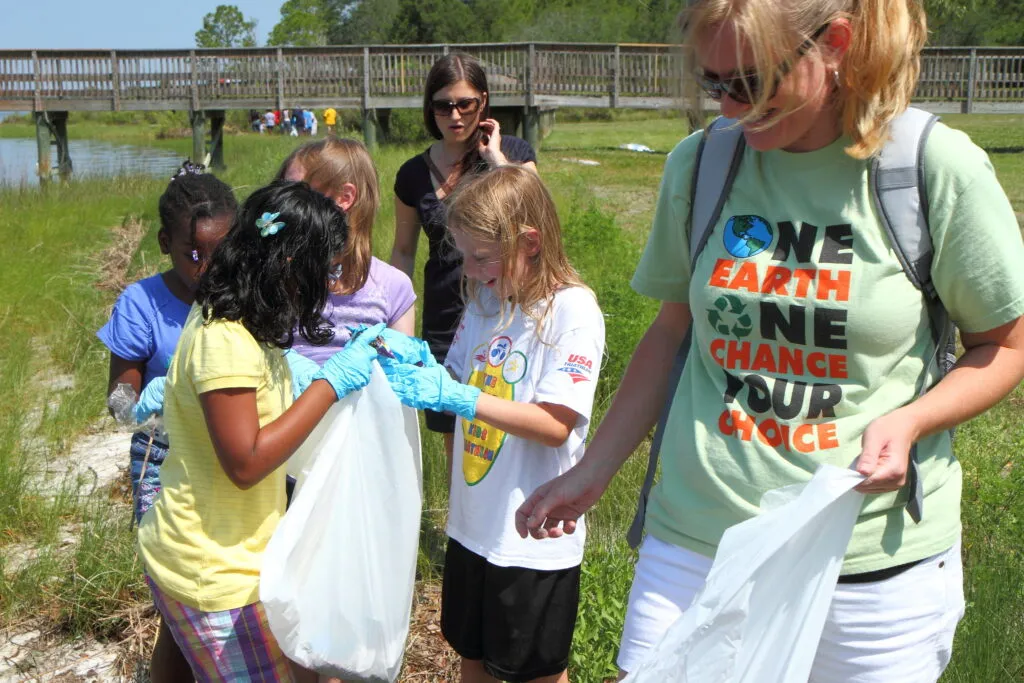
Like the air that we breathe, water is essential for life. Safeguarding our watersheds keeps our drinking water clean and supports farmers who rely on irrigation to grow the food that feeds us all. Our oceans and waterways also provide valuable habitat for wildlife, including fish, mammals, and plant species. And let’s not forget the pure joy that comes from playing in the water, whether that’s whitewater rafting, dipping your toes in a woodland stream, or chasing the perfect wave.
Volunteer to remove trash and plant trees alongside streams
Now, more than ever, Earth’s water bodies need our help to keep them clear of plastic and other waste. There is no shortage of groups that would benefit from volunteers to remove trash and even plant trees alongside streams.
One example is River Cleanup, which started out as a European initiative but has since expanded to Africa and Asia. The nonprofit American Rivers leads a National River Cleanup with partners across the country. And if you live down under, Clean Up Australia serves as a clearinghouse for trash retrieval events around the country.
On the European continent, Plastic Pirates’ EU-backed Go Europe campaign not only recovers garbage along riverbanks but also empowers volunteers to become citizen scientists. Participants are given instructions on how to document waste by location and quantity, and asked to upload the data they’ve collected. The information is then analyzed by researchers to determine the source and volume of the pollution.
Help injured wildlife heal
We’ve all seen the dramatic footage of wildlife being cleaned up after an oil spill or saved from a natural disaster site. If you’re an animal lover, you can focus your volunteering energy to help organizations that rescue and rehabilitate injured wildlife, facilitating the return to their natural habitat. Start by reaching out to your local wildlife center or animal shelter.
But remember that this work isn’t for the faint of heart or the ultra-busy person. You’ll probably have to go through some training, particularly if you are going to be interacting directly with the wildlife. Also, most of these organizations will require volunteers to pledge a certain amount of time. After all, these animals have been through a lot, and they need stability and consistent care to heal. If you’re willing to make the commitment, however, the work can be incredibly rewarding.
Speak out in defense of the environment
The suggestions above offer tangible ways to roll up your sleeves, but what if you want to get at the root of the policies that contribute to some of the world’s biggest environmental challenges? In that case, you should volunteer with advocacy groups that lobby regional and national governments, or that sound off against bad corporate actors.
Power up your search skills
Whether it’s climate change, wildlife conservation, or environmental racism, you can find an activist group that focuses on your driving issue. These organizations often need people to engage in door-to-door voter canvassing before an election, or participate in phone and letter-writing campaigns around specific legislation or candidates.
If you want to be an advocate but the thought of speaking out makes you clam up, remember that advocacy groups also need administrative help to carry out their campaigns. This can take the form of stuffing envelopes, managing phone lists, or getting flyers printed and distributed. Although these steps may not be as high-profile, they are just as important. Effective advocacy requires logistical support—it’s called community “organizing” for a reason.
Put your professional skills to work for the planet
Finally, consider how your unique skill set might be useful to a nonprofit. If you’re a lawyer, you could offer your legal services pro bono. Are you an artist? Perhaps you can design posters and signs. Writers can offer to pen press releases and blog posts. The abilities you use in your day-to-day life can be enormously helpful to a group that’s operating with a tiny budget.
Teach the next generation of environmental stewards
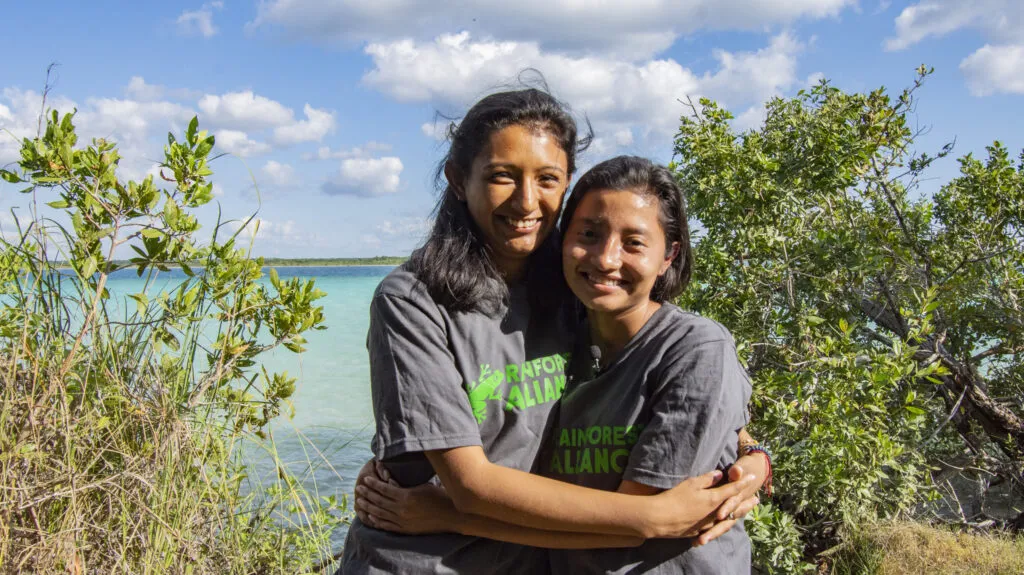
Good and bad, the choices we make today will be felt for decades to come. That’s why the Rainforest Alliance works with teachers and students, equipping young people with the knowledge and tools they need to make our world a better place. If this resonates for you, seek out volunteering opportunities that support the next generation of environmental stewards.
Start a youth environmental club
Does your local library or community center have an environmental club or reading group for youth? If not, start one. Offer to teach a class, lead a recycling program, or get young people involved with any of the volunteering activities described in this article. For example, community gardens are a wonderful vehicle for teaching kids about trees, plants, and farming, and older kids can participate in your next clean-up event at a local park.
Give back to your local school system
Many schools struggle to get funding for activities that go beyond the basic curriculum. Reach out to the principal and volunteer to set up or manage these projects or see if existing groups (like a local Boys & Girls Club) could use your help.
Follow your inspiration and get started
When it comes to supporting the environment, we each have our own unique talents and interests to draw on. Let your enthusiasm and skills be your guide, but don’t be afraid to step out of your comfort zone. If an activity is not a good fit, you can always pivot to something else. The important thing is to take that first step.
For additional ideas on how to make a difference, sign up for our 30-day sustainability challenge and join us in building a greener, healthier planet for all.
